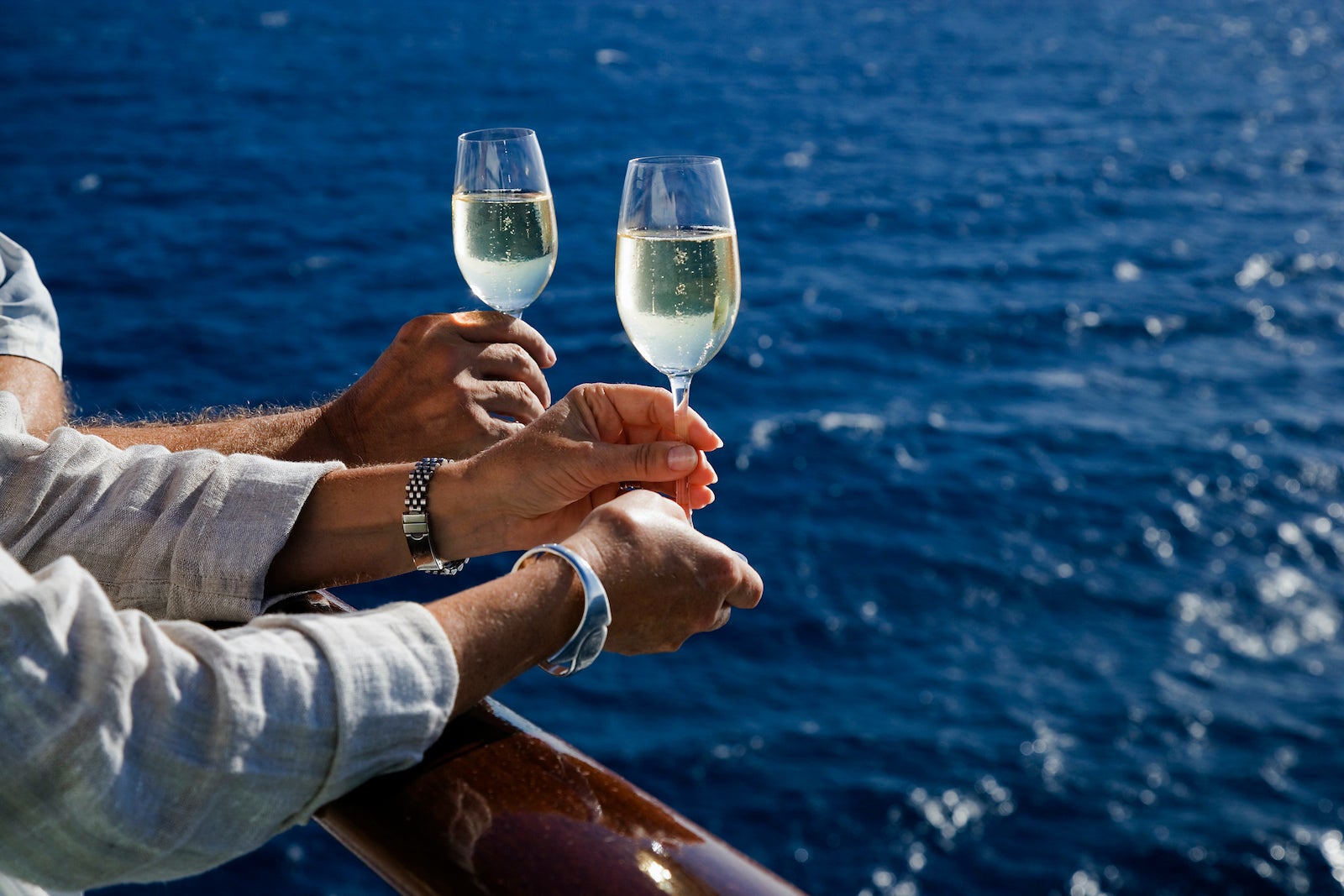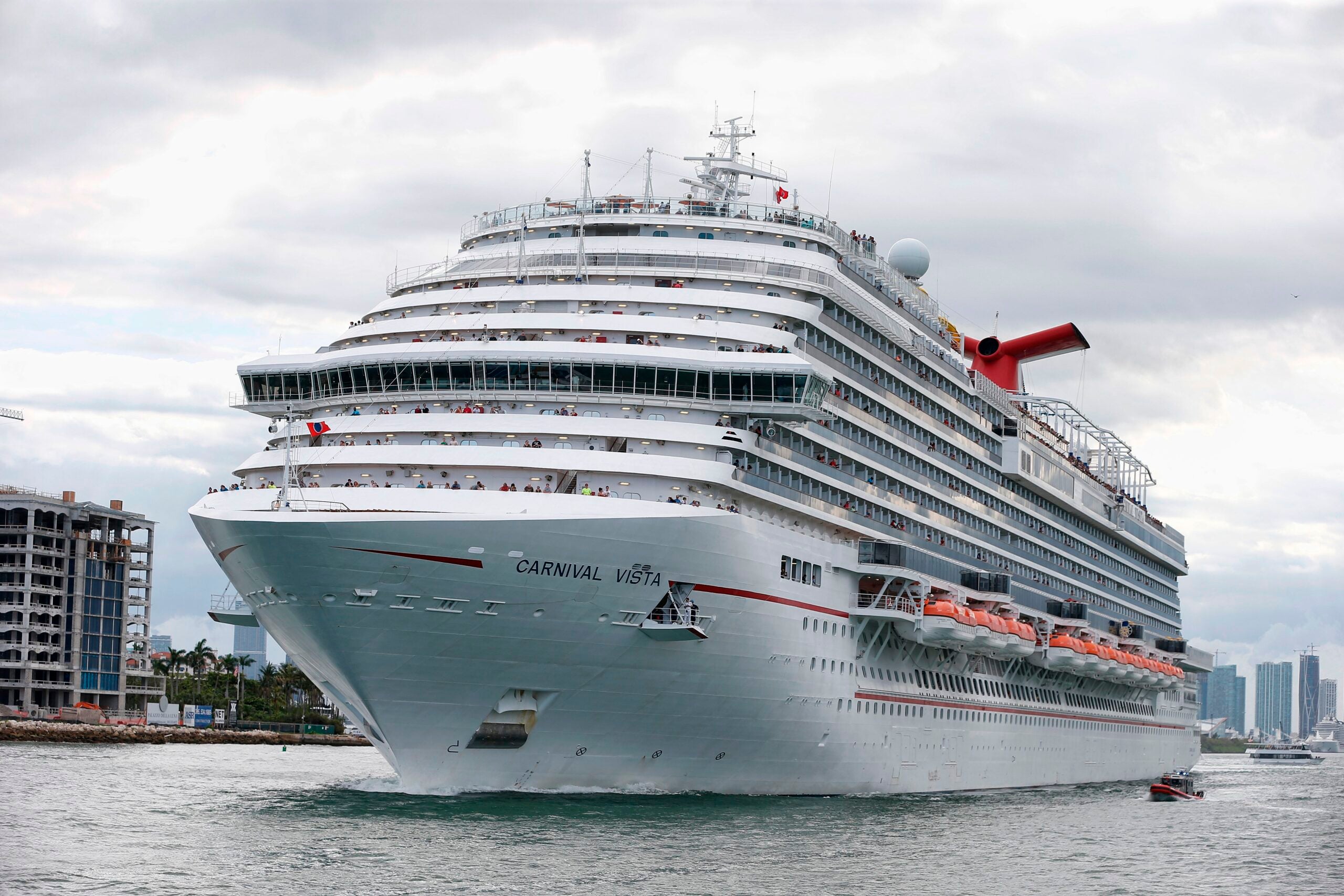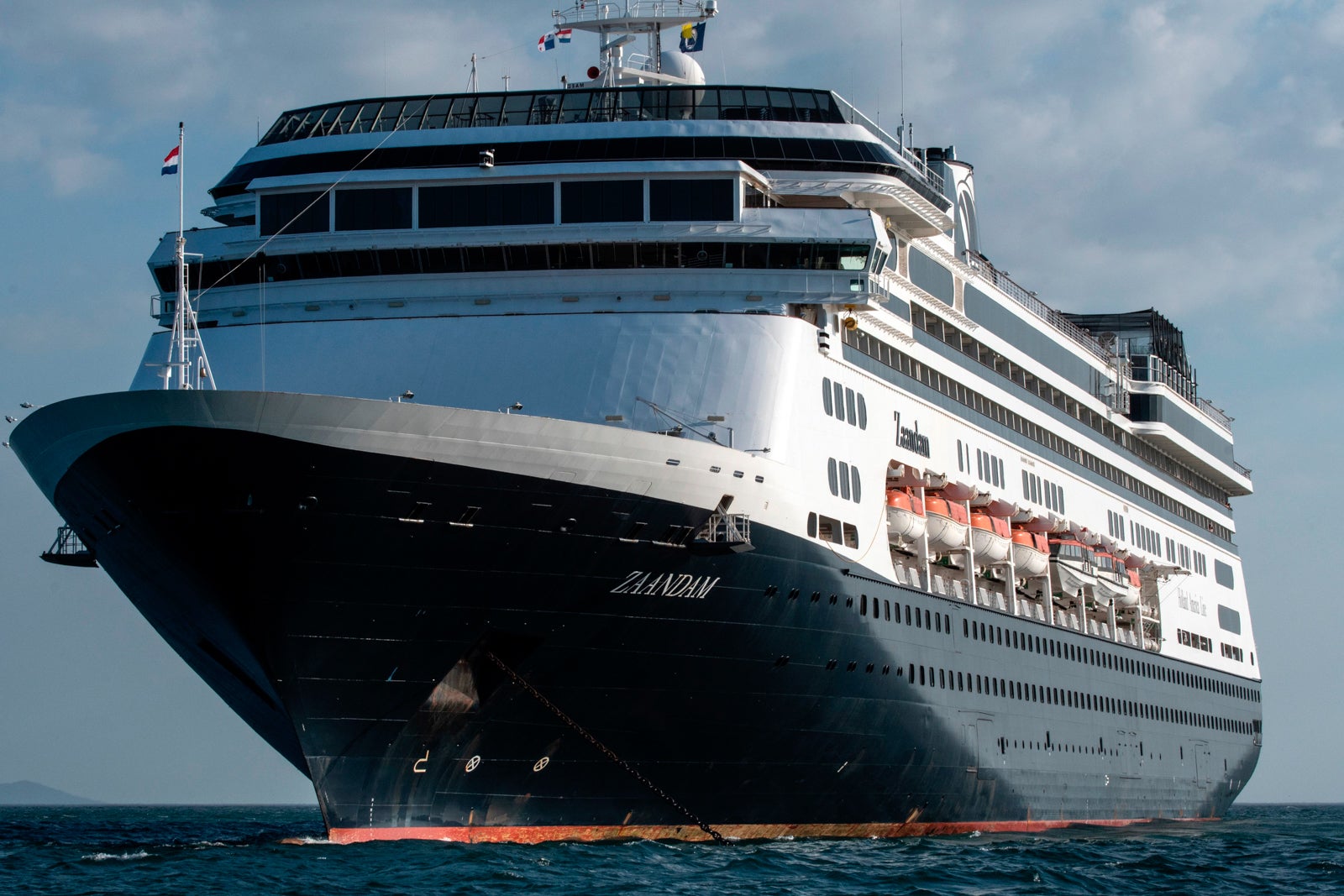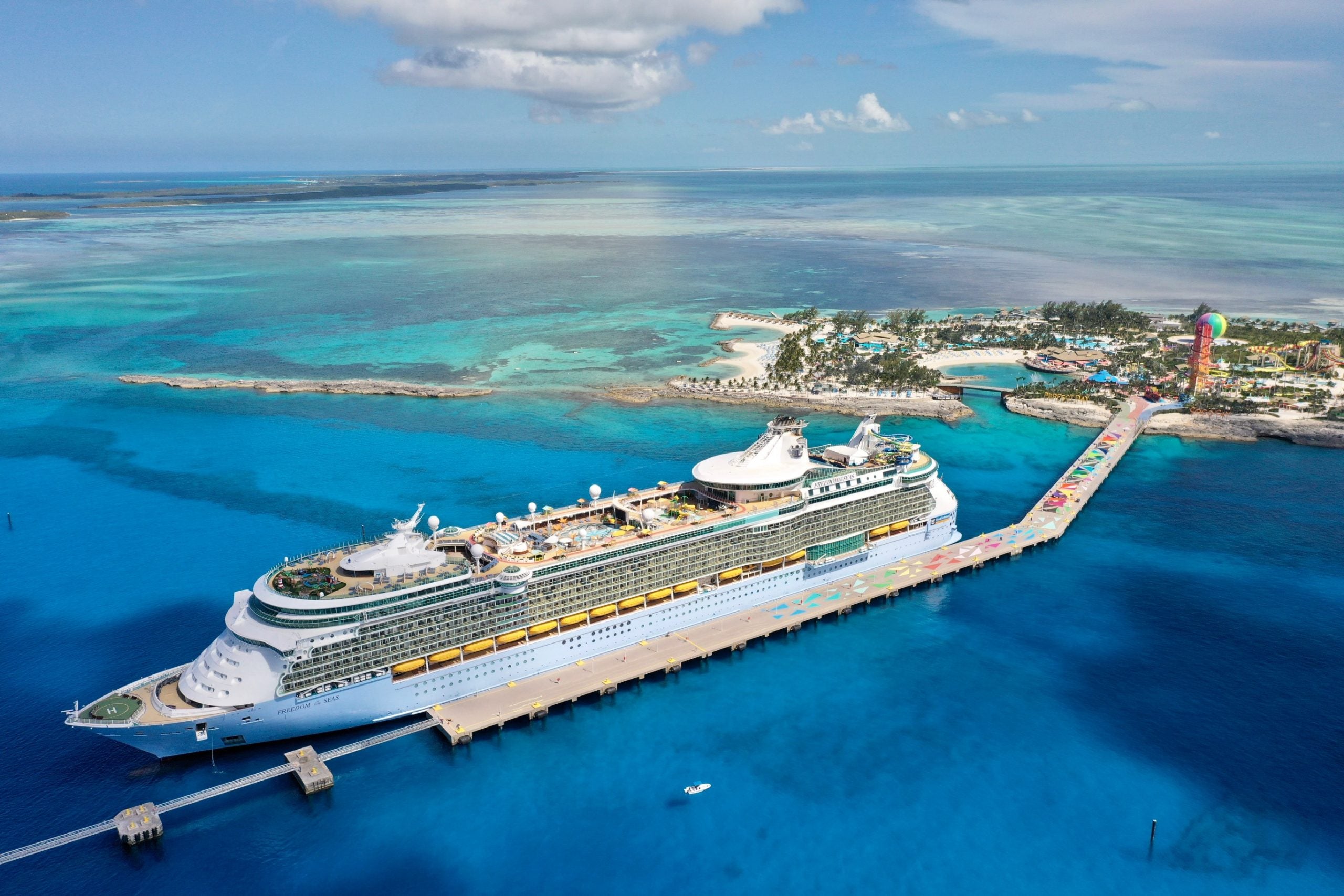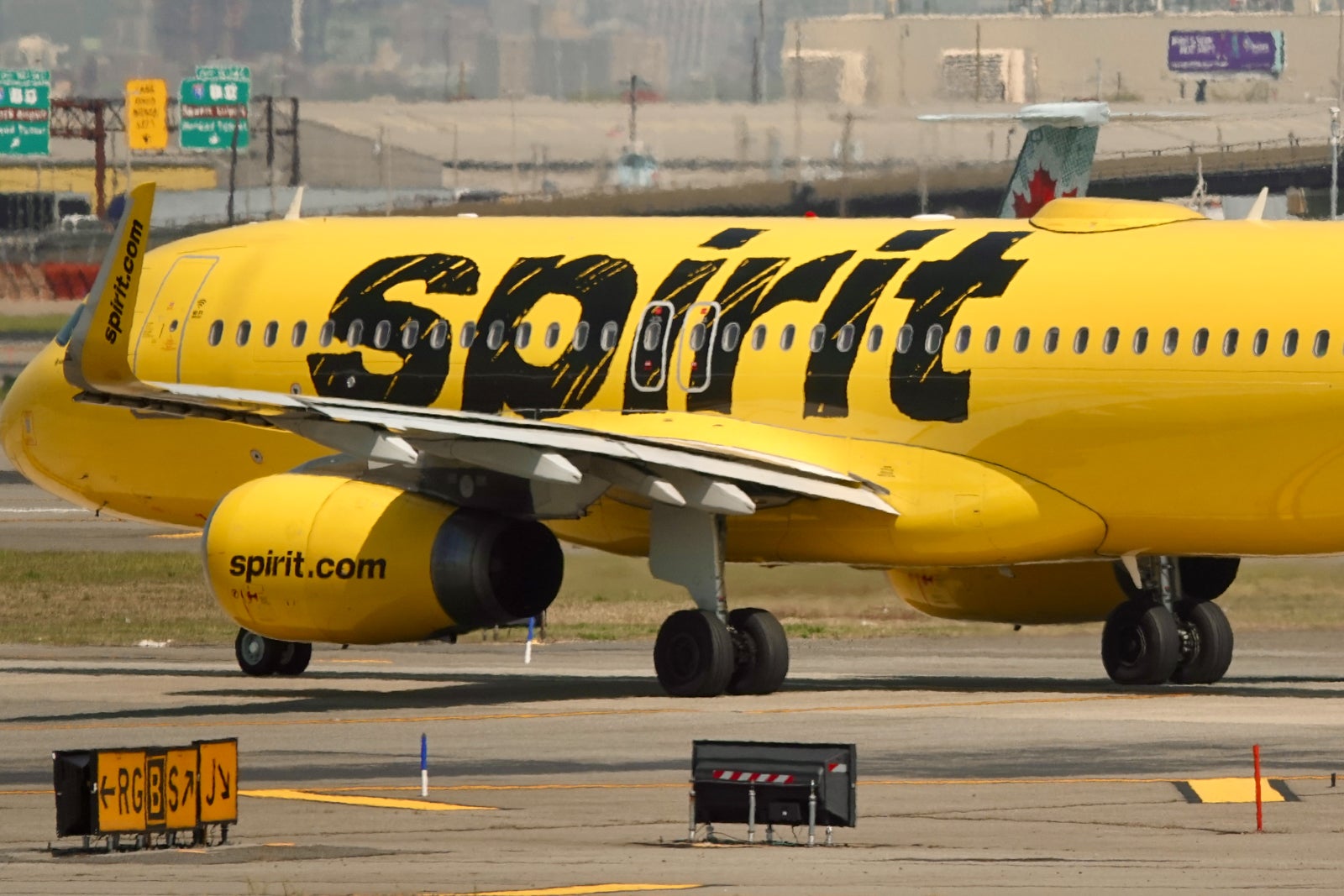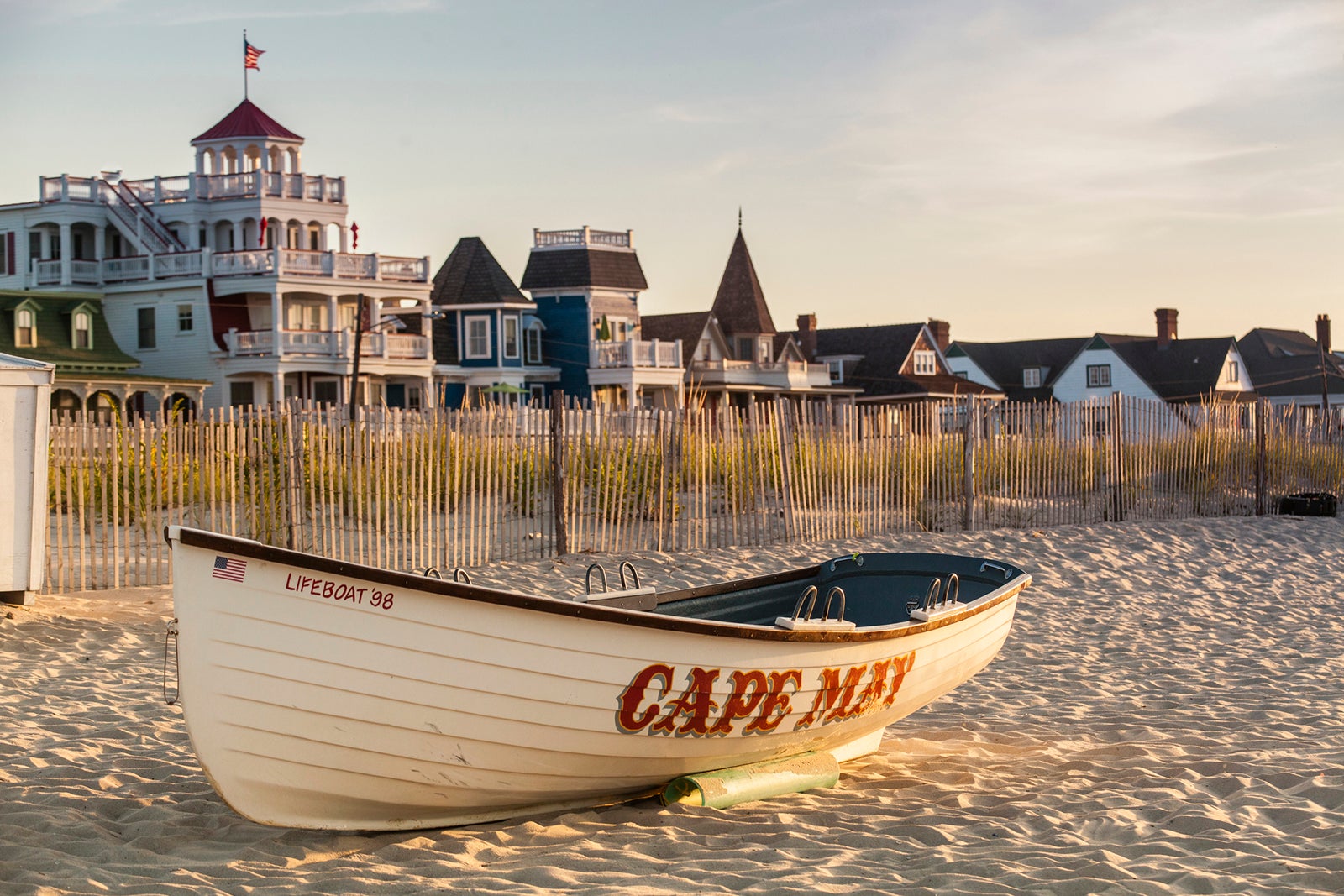Can I bring alcohol on a cruise ship? A line-by-line guide
Unsurprisingly, cruise lines make revenue by selling drinks to their passengers — and with a large markup. With that in mind, many newbie cruisers wonder if they can bring their own alcohol on board. The answer varies by cruise line, but in most cases, it’s both yes and no.
If the cruise line allows alcohol — which, in the case of mainstream lines, is mostly only wine or Champagne — there will likely be rules that limit the number and size of bottles, as well as per-bottle corkage fees (usually $10 to $25) that you must pay if you consume the alcohol outside of your cabin.
If you are allowed to bring a bottle or two and choose to do so, you must carry it on rather than pack it in your checked luggage. So, if you’re flying to the port and choose to bring alcohol from home instead of purchasing it in port before embarkation, you’ll have to transfer your booze from your checked bag to your carry-on.
For cruise news, reviews and tips, sign up for TPG’s cruise newsletter.
On luxury ships, you might be able to bring as many bottles of booze as you like and replenish your supplies at the ports of call, too. Don’t miss buying Bordeaux in Bordeaux!
The rules for bringing your own alcohol generally apply to passengers 21 and older. The bottles must be unopened and sealed.
If you think it’s easy to sneak alcohol on a cruise ship — in a flask, mouthwash bottle, water bottle or other container — you’re wrong. Cruise lines know the tricks. If you get caught, the container will be taken away and discarded, and you could be prevented from sailing.
Alcohol purchased in the ship’s duty-free shops will be stored for you and returned at the end of your voyage.
With all that in mind, here is a line-by-line rundown of cruise line policies for bringing your own alcohol on ships.

Daily Newsletter
Reward your inbox with the TPG Daily newsletter
Join over 700,000 readers for breaking news, in-depth guides and exclusive deals from TPG’s experts
Azamara Cruises
You can bring your own liquor, beer or wine for consumption in your Azamara suite or cabin at no charge. If you want to drink your own bottle in a dining venue or bar, there’s a $10 corkage fee. The same rule applies to alcohol purchased in ports. If you buy a bottle at the duty-free shop, it will be stored until the end of your cruise.
Carnival Cruise Line
At embarkation on Carnival Cruise Line ships, passengers 21 and older may bring on board one 750-milliliter bottle of wine or Champagne (sealed and unopened) per person packed in their carry-on luggage. There is a corkage fee of $15 if you drink your bottle outside your cabin. That rum you purchased in port will be retained for you until the last night of your cruise. The same goes for any onboard duty-free purchases. You’ll collect checked alcohol in a designated lounge before you disembark.
Celebrity Cruises
You can bring two bottles of wine or Champagne (maximum of 750 milliliters each) on board at embarkation, per cabin, on Celebrity Cruises‘ ships. However, beer and spirits are not allowed. There is a corkage fee of $25 in restaurants or bars. Anything you purchase at port or the duty-free onboard shop is held until the last day of your sailing.
Cunard Line
The carry-on allowance for Cunard is one bottle of wine or Champagne per adult but no beer or liquor. There is a $25 corkage fee if you drink your wine or Champagne in a dining venue. Any alcohol purchased at ports is held and returned on the last night of the cruise.
Disney Cruise Line
You are allowed to bring beer, wine or Champagne on Disney cruises on embarkation day and in each port of call. The limit is two bottles of wine or Champagne (up to 750 milliliters each) or six beers (up to 12 ounces each) in your carry-on per adult. You cannot consume alcohol in any lounge or other public area, but you can bring your bottles to the dining rooms, with a $27 corkage fee charged. Any excess amounts you try to bring on board will be stored until the end of the cruise.
Holland America Line
Holland America Line allows adults 21 and older to bring bottles of wine or Champagne on board in their carry-on, but there is a corkage fee of $20 per bottle for the privilege (even if you drink the wine or Champagne in your cabin). The policy does not specify the maximum number of bottles allowed but says cruise officials reserve the right to decide if you’re bringing too much and could force you to check some of it until the end of your sailing. No beer, liquor or boxed wine is allowed.
You can bring wine on board from ports, but any other liquor purchases will be retained until the end of the cruise. One bottle of wine per person is exempt from the $20 corkage fee if purchased ashore as part of a winery visit arranged through Holland America.
MSC Cruises
No alcohol can be brought on board at embarkation on MSC cruises, and anything purchased in port or at the duty-free shop will be held until the end of the cruise.
Norwegian Cruise Line
You may bring wine or Champagne on board Norwegian Cruise Line voyages, including 1,500-milliliter magnum bottles, and there is no limit on the number of bottles. Corkage fees are based on size and range from $15 to $30. They apply even if you plan to drink the bottles in your cabin. Corkage fees do not apply to passengers with beverage packages.
No liquor, beer or boxed wine can be brought and consumed on board. (These bottles and duty-free purchases will be held until the final night of the cruise or the morning of disembarkation.)
Oceania Cruises
You may bring on board up to six bottles of wine or Champagne per cabin (60 bottles for world cruises) at embarkation. You may also bring bottles purchased during visits to ports of call. There is a corkage fee of $25 per bottle if you consume your bottles in public areas on Oceania‘s ships. Beer or liquor brought on board or purchased in port will be held until the end of the cruise, and the same applies to wine and Champagne purchased in port.
Princess Cruises
You may not bring beer or liquor on board, but each adult passenger, 21 and older, is allowed one bottle of wine or Champagne (750 milliliters) that is not subject to a corkage fee if consumed in your cabin ($20 if in a restaurant or lounge). Additional bottles may be brought on board Princess Cruises sailings but are subject to a $20 corkage fee no matter where they are consumed. Port purchases are held until the end of the cruise.
Regent Seven Seas Cruises
Adults are allowed to bring alcohol on Regent cruises without restrictions. There are no corkage fees.
Royal Caribbean
Each Royal Caribbean passenger of drinking age is allowed to bring one bottle (750 milliliters) of wine or Champagne in a carry-on. You are not allowed to bring your own beer or liquor. There is a $15 corkage fee if you consume your bottle in a dining room. If you declare you have additional bottles or make purchases in ports or at duty-free onboard shops, these beverages will be stored until the end of the cruise.
Seabourn Cruise Line
You are free to bring spirits, wine and Champagne on board. There are no corkage fees or limits on Seabourn cruises.
Silversea Cruises
You are allowed to bring wine and liquor on board for your personal consumption, both on embarkation day and at ports of call. Silversea has no limits and no corkage fees.
Viking Ocean Cruises
Viking does not limit quantities or charge corkage fees, and you are allowed to bring wine, Champagne, beer and liquor on board.
Virgin Voyages
Virgin Voyages passengers are allowed to bring two bottles of wine, sparkling wine or Champagne (up to 750 milliliters each) per cabin in their carry-on luggage. Liquor and beer are not allowed. Bottles consumed outside of your cabin will incur a $25 corkage fee; if you have a bar tab, you can use it to cover any corkage fees. Alcohol brought on board in checked luggage or not in accordance with the policy will be stored until the end of the sailing. Bottles purchased in port also will be held until the final night.
Windstar Cruises
No beer or liquor is allowed to be brought on board Windstar voyages. You may bring up to two bottles of wine or Champagne (up to 750 milliliters each) per cabin on embarkation day (three bottles if your sailing is more than a week). There is a $15 corkage fee (plus a 15% gratuity) if you consume the alcohol outside your cabin. Alcohol purchased in ports will be stored until the end of the cruise.
Planning a cruise? Start with these stories:

